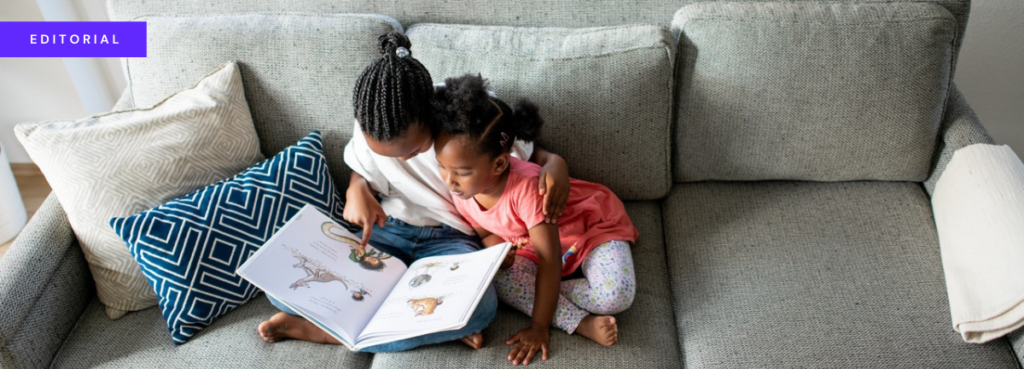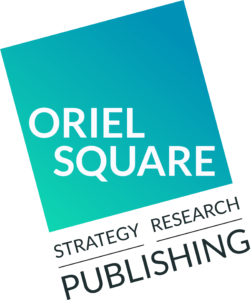All children have the right to read quality books: a report from Bologna Children’s Book Fair 2022

I was lucky this year to have the chance to attend the Bologna Children’s Book Fair (BCBF) for the first time. Like most of the team at Oriel Square, I’ve always worked on educational books and digital resources, and of course Bologna’s main focus is on trade. So attending Bologna this year gave me an insight into the huge variety and incredible quality of books and media that are consumed by children in their life around and outside school. It was a bit like being in the most enormous, well-equipped children’s bookshop you can imagine. (There is also an actual bookshop within the fair, which was nothing short of dangerous – I came very close to an excess baggage charge!)
Working on educational materials for schools, you sometimes get the idea that people think it’s not all that important for the books to look lovely. Not the people working on the books – they’re completely committed to making each book as good as it can possibly be – but people from other branches of publishing. ‘Educational’ almost becomes a synonym for functional, or even ugly; reading your reading-scheme book is like eating your vegetables, compared to ‘real books’.
Finding inspiration at BCFB for education content
I’ve always felt that while trade children’s publishing makes books for children whose parents buy books and take them to libraries, educational publishing makes books for all children. All children who attend school are given reading scheme books, even if their school faces challenges in making time for reading stories aloud or doesn’t have a library. Charities like Booktrust are trying to change this – of course, reading for pleasure is something all children should get to do. But in the meantime, it’s even more important that those books that children are given to read in school are inclusive, engaging and of the highest quality. And that’s why I found the BCBF so inspiring, because it was full of ideas that I can use in my work on primary educational materials for publishers and educational technology companies, even if we often don’t have the budget for the amazing die-cuts, foils and pop-ups that were all over the stalls.
Here are my top 3 takeaways that I’m going to use when I help produce educational content for schools
- Emotional literacy. I saw a real surge in books that help children to understand their emotions and develop empathy, and I think we’re going to see more and more of this in educational publishing. We know that the pandemic has damaged children socially and emotionally, and we know that books can be a brilliant tool to develop empathy. I think in education we’ll see more and more books like the ‘Big Bright Feelings’ series, and more sophisticated language around feelings and emotions, as a way of developing children holistically.
- Pared-down illustration styles. Of course, one of the best things about Bologna is the opportunity to see the work of so many talented illustrators from all over the world, and briefing illustrations is one of the best parts of creating new readers or textbooks. There was a huge variety of techniques and styles on display, but one of my favourites was where illustrators had used a very limited colour palette, sometimes with just one or two colours often representing different feelings or emotions, or mostly black and white with a very limited use of colour enabling particular elements to stand out. It was a very subtle but achievable way of adding emotional depth to a scene.
- Diversity of characters. It was really great to see so many publishers promoting books with a wide variety of main characters – boys and girls from different racial backgrounds and different kinds of families, as well as with visible and invisible disabilities. We know there’s more to do here, but it was a great reminder that as an editor, asking the question, ‘Is there any reason why this character can’t be black / a girl / a wheelchair user?’ is always something I can do to make educational resources more inclusive.
Finally, a note on the title for this blog: I took this from a presentation I watched about the Read with Me project in Iran, which makes quality books accessible to children living in remote and deprived areas. It was a sobering reminder that the huge flowering of creativity that can be seen in the halls of Bologna isn’t available to all children globally, although there are dedicated people working very hard to change that.
So, while we work towards this goal, the central significance of school books to many children’s formative reading experiences should not be underestimated. Vibrancy, diversity and emotional depth are equally vital to educational publishing; all children have the right to read quality books.

Liz Cremona-Howard is Editorial Project Manager at Oriel Square strategy, research and publishing. She works on a wide variety of educational resources, specialising in primary English and early reading.
Oriel Square works with companies big and small to create high-quality, inspiring content to deliver transformation through education. Our team can support you with end-to-end publishing services, or jump in at any point in a print or digital publishing project. Get in touch, get more from our blog or follow us on Twitter to find out more.





